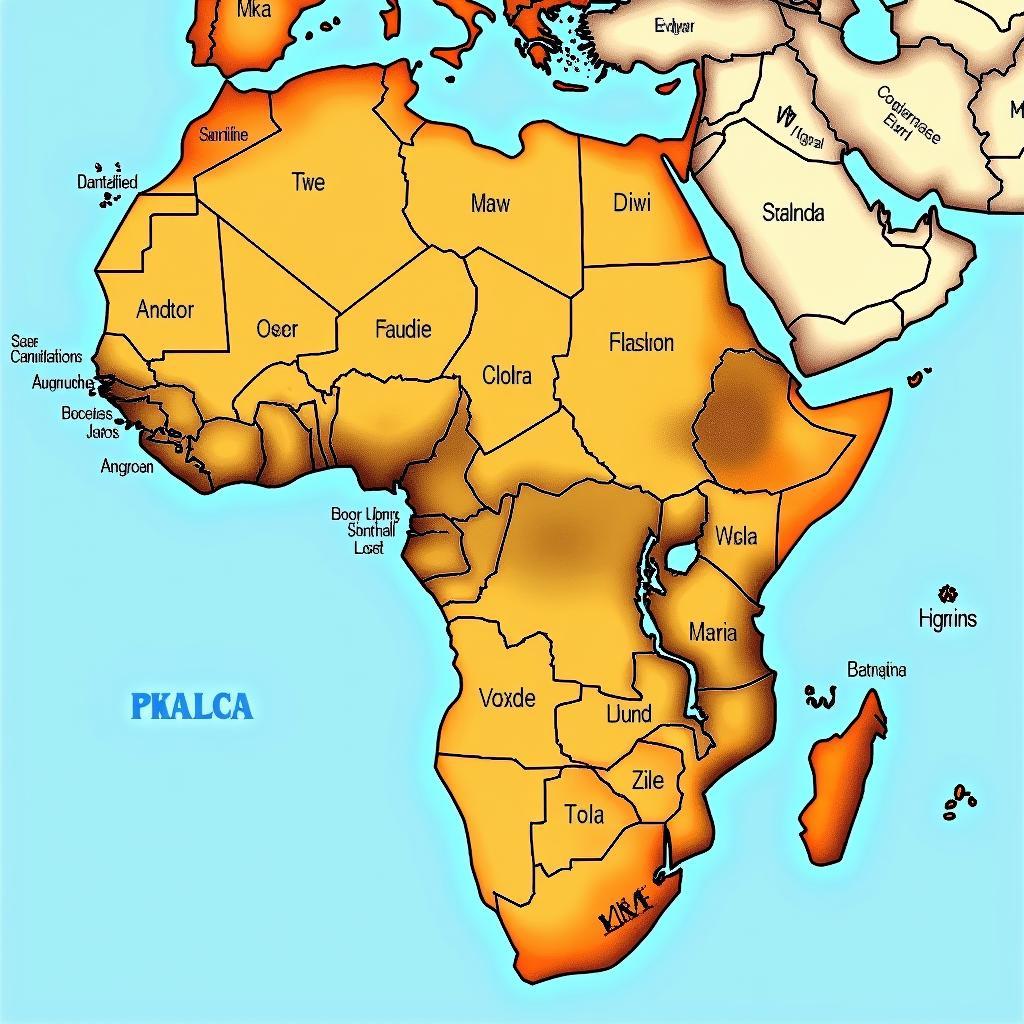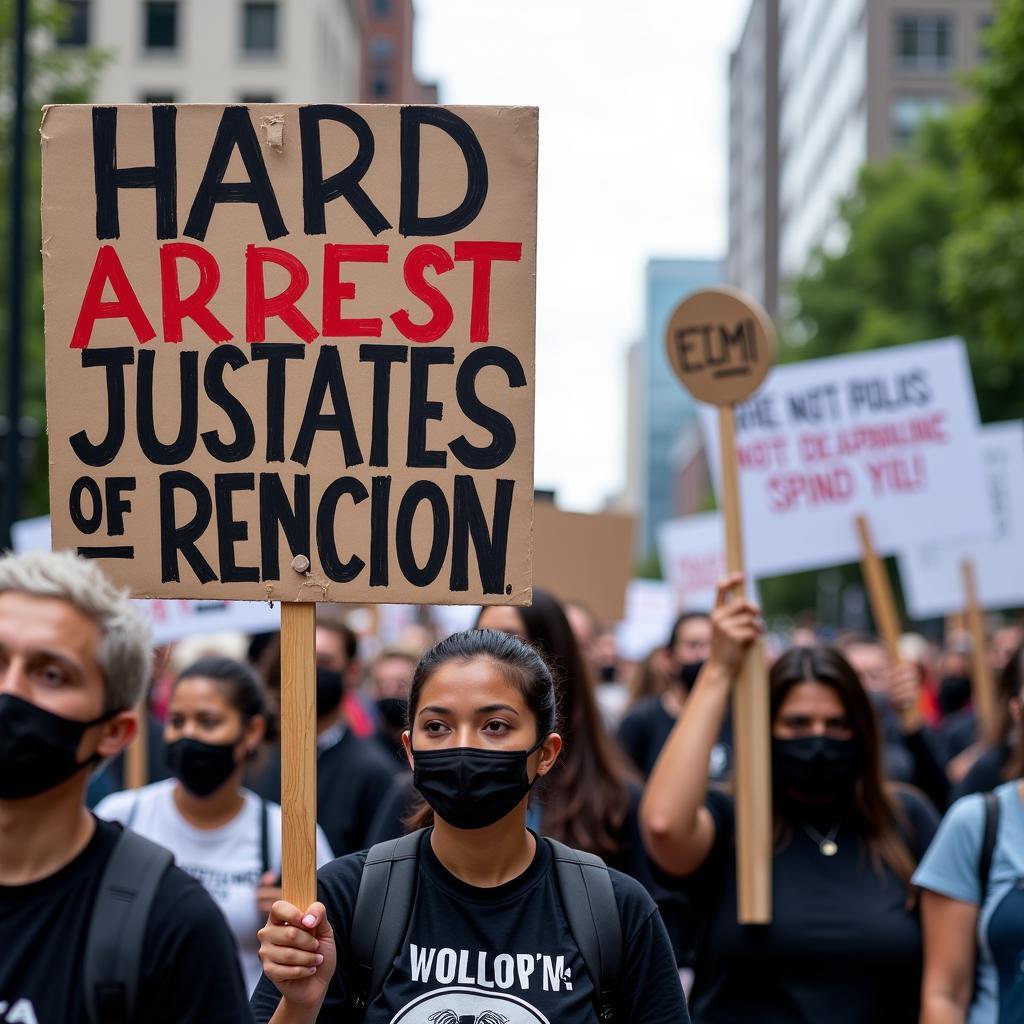Indulge in the Richness of African Dark Chocolate
African Dark Chocolate is more than just a confectionery; it’s a testament to the rich agricultural heritage and burgeoning artisanal chocolate scene across the continent. From the sun-kissed cocoa farms of Ghana and Ivory Coast to the innovative chocolatiers of Madagascar and South Africa, African dark chocolate offers a unique flavor profile and an ethical story that resonates with conscious consumers.
The Allure of African Dark Chocolate: A Journey from Bean to Bar
The unique terroir of Africa, characterized by diverse climates and soil compositions, imparts distinctive flavors to the cocoa beans. This results in dark chocolate with complex notes, ranging from fruity and floral to earthy and spicy. Moreover, the increasing focus on sustainable farming practices and direct trade relationships empowers local communities and ensures the quality of the final product. African dark chocolate is a celebration of both flavor and ethical sourcing.
Discovering the Origins of African Cocoa
West Africa, particularly Ghana and Ivory Coast, dominates global cocoa production. The hot, humid climate of these regions provides the ideal conditions for cocoa trees to thrive. However, the history of cocoa cultivation in Africa is complex and often intertwined with colonial legacies. Today, there’s a growing movement towards empowering local farmers and promoting sustainable agricultural practices to ensure a brighter future for African cocoa.
The Art of Crafting African Dark Chocolate
The process of transforming cocoa beans into decadent dark chocolate is an art form. It involves harvesting ripe cocoa pods, fermenting the beans to develop their flavor, drying and roasting them to perfection, and finally, grinding and conching the chocolate to achieve a smooth, velvety texture. Many African chocolatiers are now embracing bean-to-bar production, allowing them to control every step of the process and showcase the unique characteristics of their local cocoa beans.
Why Choose African Dark Chocolate?
Beyond its exquisite taste, African dark chocolate offers several compelling reasons to choose it over its counterparts. Its high cocoa content, often 70% or higher, provides a rich, intense flavor and boasts numerous health benefits, including being a source of antioxidants. Furthermore, supporting African dark chocolate contributes to sustainable development and empowers local communities.
Health Benefits of Indulging in Dark Chocolate
Dark chocolate, especially the high-cocoa varieties prevalent in Africa, is known for its potential health benefits. Rich in flavonoids, it can contribute to improved cardiovascular health and cognitive function. Remember, moderation is key. Enjoying a small piece of African dark chocolate can be a guilt-free pleasure.
The Ethical Impact of Your Chocolate Choice
Choosing African dark chocolate is a vote for ethical consumption. By supporting brands that prioritize fair trade and sustainable farming practices, you contribute to the economic empowerment of cocoa farming communities and help protect the environment. This ensures that the delicious chocolate you enjoy has a positive impact on the lives of those who produce it.
Exploring the Diverse Flavors of African Dark Chocolate
From the floral notes of Madagascar chocolate to the earthy tones of Ghanaian chocolate, each region offers a unique flavor profile. This diversity reflects the varied terroirs and the distinct approaches to cocoa cultivation and chocolate making across the continent.
Dr. Aminata Sow, a renowned agricultural scientist specializing in cocoa cultivation in West Africa, notes, “The soil composition and microclimate play a crucial role in shaping the final flavor profile of the cocoa beans. Each region in Africa offers a unique combination of these factors, resulting in a remarkable diversity of chocolate flavors.”
Conclusion: Savor the Taste and Story of African Dark Chocolate
African dark chocolate offers a truly unique experience, combining exquisite flavor with ethical sourcing and a rich cultural heritage. By choosing African dark chocolate, you are not just indulging in a delicious treat but also supporting sustainable development and empowering local communities. So, next time you crave chocolate, reach for a bar of African dark chocolate and savor the taste and the story behind it.
FAQ
- What makes African dark chocolate different? The unique terroir and increasing focus on sustainable farming practices give African dark chocolate a distinctive flavor profile and ethical appeal.
- Where does most African cocoa come from? West Africa, specifically Ghana and Ivory Coast, are major cocoa-producing regions.
- What are the health benefits of dark chocolate? Dark chocolate is rich in antioxidants and may contribute to improved cardiovascular health and cognitive function.
- What does “bean-to-bar” mean? Bean-to-bar refers to chocolate makers who control every step of the production process, from the cocoa bean to the finished chocolate bar.
- Why is ethical sourcing important for chocolate? Ethical sourcing ensures fair wages for farmers, sustainable farming practices, and a positive impact on cocoa-growing communities.
- What are some popular African dark chocolate brands? Several brands are emerging, showcasing the unique flavors of different African regions.
- Where can I buy African dark chocolate? Specialty food stores, online retailers, and some supermarkets stock African dark chocolate.
When you need assistance, please contact us 24/7: Phone: +255768904061, Email: kaka.mag@gmail.com, or visit us at Mbarali DC Mawindi, Kangaga, Tanzania. We have a dedicated customer service team ready to help you.
Kofi Atta, a master chocolatier from Ghana, adds, “African dark chocolate is more than just a product; it’s a reflection of our land, our culture, and our passion for creating exceptional chocolate.”
Ms. Fatma Said, a cocoa farmer from Tanzania, shares, “Direct trade has transformed our lives. It allows us to receive fair prices for our cocoa beans and invest in our communities.”
You might also be interested in reading about the history of cocoa in Africa or exploring different chocolate recipes featuring African dark chocolate.



